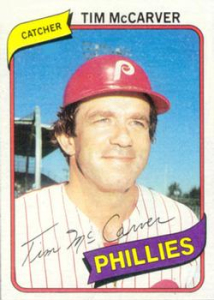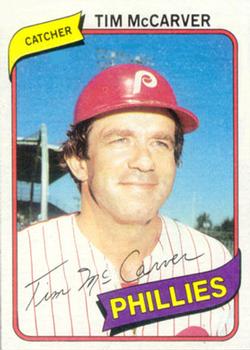October 1, 1970: Wrecking ball for Connie Mack Stadium as Phillies play final game
 The Philadelphia Phillies had hoped to play their 1970 season at the new Veterans Stadium, but delays in construction meant the 1970 season would at least begin at Connie Mack Stadium. Built in 1909 and originally called Shibe Park, Connie Mack Stadium was the home of the Philadelphia Athletics until 1954 and the Phillies beginning in July 1938. The Phillies vice president of baseball operations, Bill Giles, believed the that the team would move into Veterans Stadium in midsummer, so he celebrated Opening Day as a major event.1 The game, however, drew only 15,918, and as the season progressed. It became apparent that the Phillies would finish the season at 21st & Lehigh.
The Philadelphia Phillies had hoped to play their 1970 season at the new Veterans Stadium, but delays in construction meant the 1970 season would at least begin at Connie Mack Stadium. Built in 1909 and originally called Shibe Park, Connie Mack Stadium was the home of the Philadelphia Athletics until 1954 and the Phillies beginning in July 1938. The Phillies vice president of baseball operations, Bill Giles, believed the that the team would move into Veterans Stadium in midsummer, so he celebrated Opening Day as a major event.1 The game, however, drew only 15,918, and as the season progressed. It became apparent that the Phillies would finish the season at 21st & Lehigh.
Giles and his staff came up with a promotion for the last game that they called “Farewell to Connie Mack Stadium.” Employees wore old-fashioned clothes, concessions sold peanuts for a nickel, and an old-time bicycle group performed.2 Connie Mack Jr. gave some opening remarks before the game. Mack received a typical Philadelphia welcome. “For a while I thought I was dreaming I was in Philadelphia, then I heard the boos and I knew I was back,” he told the crowd.3 Claude Passeau, the pitcher who won the first game for the Phillies at Shibe Park on July 4, 1938, after their move from the Baker Bowl, threw out the first pitch.4 Giles’s plan was to give away several prizes after the game, including a 1970 Mustang, and then a helicopter would transport home plate to its new home. Those plans would need to be altered.
There was trouble before the game even started. Joseph Sohosky of Exton, Pennsylvania, was purchasing a ticket for the game around 7:30 P.M. when he felt a stinging sensation on his back. He turned and saw four youths running away and then saw he was bleeding from a stab wound. He was taken to a local hospital but returned to see the game.5
There was not much at stake for this final game of the season between the Phillies and Montreal Expos. Philadelphia entered the day 72-88, 15½ games behind their in-state rival Pittsburgh Pirates in the National League East Division. The Expos, in their second season, were a half-game better at 73-88. The Phillies started Barry Lersch (6-3), who had joined the starting rotation in mid-August. The Expos countered with Carl Morton, easily the best pitcher on their staff, who entered the game with a record of 18-11. Both pitched well but neither factored in the decision.
The Expos threatened in the second inning, when John Bateman reached on an error and Bobby Wine singled him to third with two out, but Lersch struck out his counterpart Morton to end the threat. The Phillies scored in the third. Lersch led off with a single but was retired on a fielder’s choice by Tony Taylor. Taylor scored when catcher Tim McCarver tripled to right. The run would be nearly enough for Lersch. He gave up a single in the fourth to Boots Day and one in the sixth to Ron Fairly, but was otherwise untouched until the eighth inning. In that inning a leadoff walk to Mack Jones was followed by an error by Taylor on a grounder off the bat of Jim Gosger, and the Expos were threatening. Gary Sutherland sacrificed the runners along and Rusty Staub was intentionally walked to load the bases. Fairly had a chance to put the Expos in the lead but struck out, and Lersch escaped the jam by getting Bob Bailey to ground out.
Morton was every bit Lersch’s equal. After the run in the third inning, Morton scattered only four more hits through the eighth inning. Lersch, who had thrown three complete games since joining the rotation, was ready to finish off the season and close the curtain on Connie Mack Stadium, but he wouldn’t only be playing against the Expos – he would also be competing against some of the some of the 31,822 in attendance. Lersch retired Day on a popup, bringing up Bateman, who lofted a fly ball to left. Ron Stone moved to catch the fly, but he had also brought some baggage. “When Stone broke for the ball, he discovered he was wearing a 130-pound kid, one of many who cavorted across the playing field late in the game.”6 “I couldn’t believe it,” Stone said. “I felt this kid grab my arm. When I tried to break away Lersch had already thrown the pitch.”7 Wine doubled to right-center to bring in pinch-runner Adolfo Phillips, and the game was tied, 1-1. Phillies manager Frank Lucchesi brought in the closer, Dick Selma, who quickly dispatched the Expos. “The statistics don’t begin to tell the kind of year Selma had,” McCarver said after the game.
The fan who had interfered with Stone was not the only on-field visitor that day. Two hundred police officers were on hand for the game but made few arrests. There were so many kids running on the field by the 10th inning that the umpiring crew considered forfeiting the game. “I told the umpires, ‘Don’t you even think about forfeiting. You forfeit and you’ll get somebody hurt real bad,’” former Phillies manager Gene Mauch said after the game.8
The Expos brought in Howie Reed to pitch the ninth, and he got the Phillies in order to send the game to extra innings. Selma did the same to the Expos in the top of the 10th. After two outs, McCarver singled and stole second base, only his second steal of the year. Oscar Gamble then singled to center, sending McCarver home with what proved to be the last run to be scored at Connie Mack Stadium. “When Tim was on first I was trying to hit the ball a long way,” said Gamble. After the steal, I just wanted to get a hit.”9
The game might have been over, but the mayhem would continue unabated. Allen Lewis noted for the Philadelphia Inquirer that “Lucchesi raced toward first base to congratulate Gamble, then both he and Oscar ran for their lives to the dugout as the fans raced on the field.”10
The Phillies decided to help “celebrate” the final game at Connie Mack Stadium by passing out artifacts from the park to the crowd, including slats from old seat backs. It must have seemed like a good idea at the time. “The idea was to give away souvenir seat slats to discourage vandalism,” Lewis stated.11 Instead, vandalism is all the fans thought of. “When the fans wearied of using the wooden clubs to bash up the furniture they began throwing them at the players and at each other. Or using them like blackjacks,” Bill Conlin in the Philadelphia Daily News reported.12 Lewis reported in The Sporting News that “Fans ripped up their seats and ransacked the dugouts. They ripped off railings and billboards, tore up the infield cover, ripped up the coach’s box, tore off doors and one fan even carried off one of the toilets.”13
Joan Rosney, a nurse at the ballpark, treated 25 postgame casualties, nine of them injured badly enough to require hospitalization. An elderly man suffered a stroke after being swept onto the field after the game. “I got hit with a karate chop,” coach Billy DeMars said. “They were stealing everything in sight; bats, helmets. It was mob violence. It kind of scares you.”14 The Phillies postponed the postgame giveaway of the prizes until the next day. It seemed that most of the fans had already gotten what they wanted.
SOURCES
In addition to the sources listed in the notes, the author accessed Retrosheet.org, Baseball-Reference.com, SABR’s BioProject via SABR.org, The Sporting News archive via Paper of Record, the New York Times archives, and the Chicago Tribune, Philadelphia Inquirer, and Philadelphia Daily News via newspapers.com.
NOTES
1 Bruce Kuklick, To Every Thing a Season: Shibe Park and Urban Philadelphia (Princeton: Princeton University Press, 1991), 179.
2 Kuklick, 180.
3 Bill Conlin, “Connie Mack Stadium Expires with a Smash,” Philadelphia Daily News, October 2, 1970: 3.
4 Allen Lewis, “Phils Bid Old Park Adieu – Fans Ransack the Place,” The Sporting News, October 17, 1970: 33.
5 “Gets Stabbed, Still Sees Game,” Philadelphia Daily News, October 2, 1970: 4.
6 Bill Conlin, “Phils Go Out in Proud, Scuffling Style,” Philadelphia Daily News, October 2, 1970: 72.
7 Conlin, “Phils Go Out in Proud, Scuffling Style.”
8 Conlin, “Phils Go Out in Proud, Scuffling Style.”
9 Allen Lewis, “31,822 See Last Game at Stadium,” Philadelphia Inquirer, October 2, 1970: 27.
10 Lewis, “31,822 See Last Game.”
11 Lewis, “31,822 See Last Game.”
12 Conlin, “Phils Go Out in Proud, Scuffling Style.”
13 Lewis, “Phils Bid Old Park Adieu – Fans Ransack the Place.”
14 Conlin, “Phils Go Out in Proud, Scuffling Style.”
Additional Stats
Philadelphia Phillies 2
Montreal Expos 1
10 innings
Connie Mack Stadium
Philadelphia, PA
Box Score + PBP:
Corrections? Additions?
If you can help us improve this game story, contact us.


